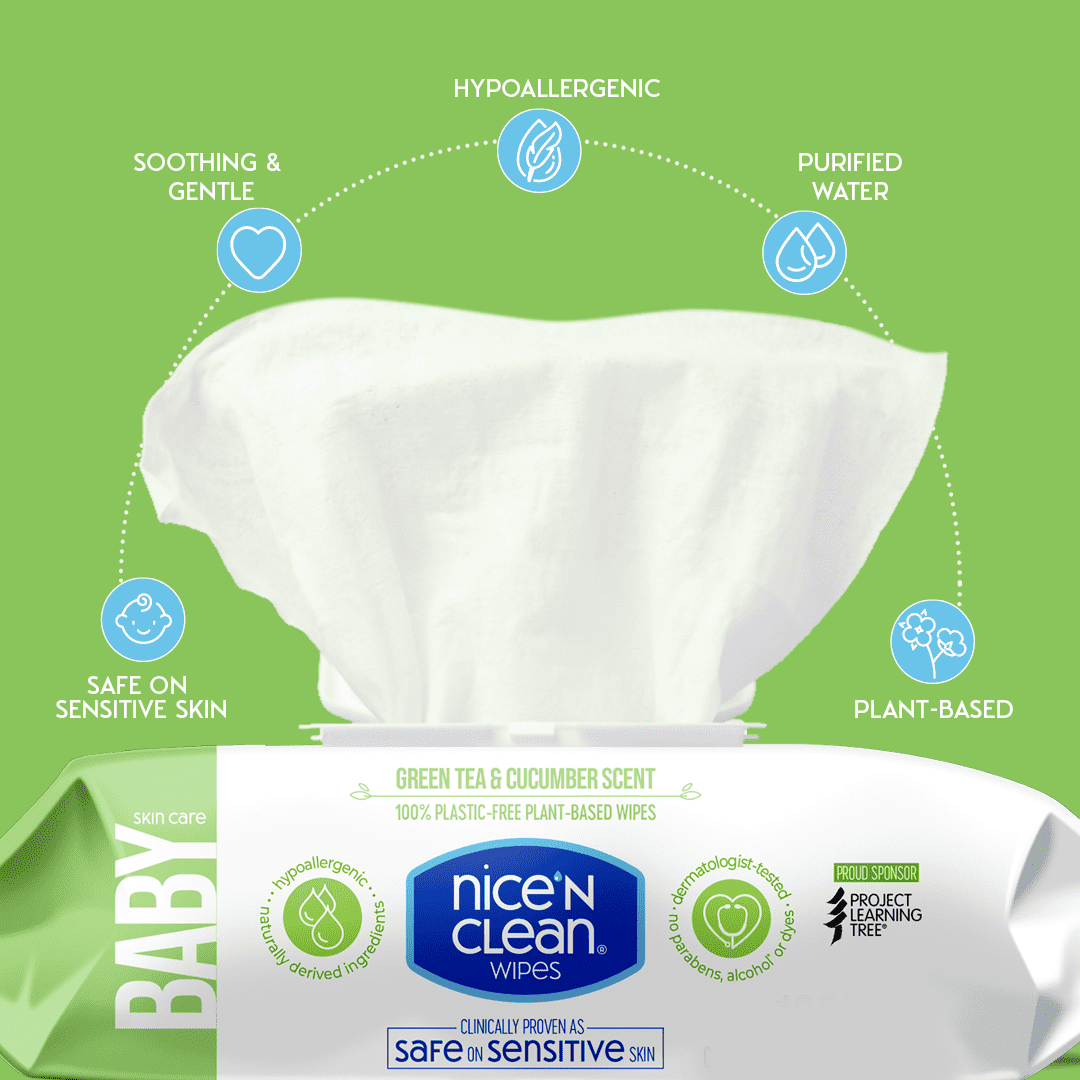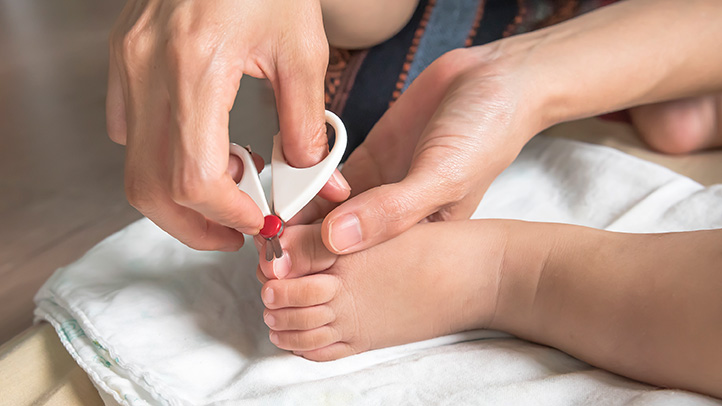Scented baby products can sometimes cause skin irritation and allergies in infants. Always check for harmful ingredients before use.
Parents naturally want the best for their babies, including the products they use. Scented baby products are popular for their pleasant fragrances, but they can pose risks. Babies have delicate skin, which is more prone to irritation and allergies. Harmful chemicals and artificial fragrances in some products can lead to adverse reactions.
Pediatricians often recommend unscented, hypoallergenic options to avoid potential problems. Reading labels and understanding ingredients can help parents make informed decisions. Ensuring the safety of baby products is crucial for the health and comfort of your child. Always prioritize gentle and natural options to protect your baby’s sensitive skin.

Credit: www.amazon.com
Common Scented Baby Products
Parents often wonder about the safety of scented baby products. These products are designed to keep babies smelling fresh. Let’s explore some common scented baby products.
Types And Varieties
Scented baby products come in many forms. Here are some popular ones:
- Baby Lotions: These keep the baby’s skin soft and smooth.
- Baby Shampoos: These clean the hair and leave a pleasant scent.
- Baby Powders: These help absorb moisture and prevent rashes.
- Baby Wipes: These are handy for quick cleanups and diaper changes.
Popular Brands
Many brands offer scented baby products. Here are a few trusted names:
| Brand | Popular Product |
|---|---|
| Johnson’s | Baby Lotion |
| Aveeno | Baby Shampoo |
| Pampers | Baby Wipes |
| Babyganics | Baby Powder |
These brands ensure safety and quality. They test their products to meet safety standards. Always check labels for any allergens. Your baby’s health is the top priority.
Ingredients In Scented Baby Products
Parents often choose scented baby products for their pleasant aroma. But are they safe? Understanding the ingredients in these products is crucial. This section will delve into the common chemicals and compare natural vs synthetic ingredients.
Common Chemicals
Scented baby products often contain various chemicals. Here are some common ones:
- Phthalates: These chemicals make fragrances last longer. They can disrupt hormones.
- Parabens: Used as preservatives, parabens prevent mold and bacteria. They may cause skin irritation.
- Formaldehyde: Found in some baby products, this chemical can be a skin irritant.
- Synthetic Fragrances: These can include many undisclosed chemicals. Some may be allergens.
Parents should be aware of these chemicals and their potential risks.
Natural Vs Synthetic
Choosing between natural and synthetic ingredients is important. Here’s a comparison:
| Natural Ingredients | Synthetic Ingredients |
|---|---|
| Derived from plants and flowers | Created in a lab |
| Examples: lavender oil, chamomile extract | Examples: synthetic fragrances, artificial colors |
| Generally safer and gentler on skin | May cause skin irritation or allergies |
| Often more expensive | Usually cheaper to produce |
Parents should read labels and choose products wisely. Natural ingredients are often safer. But not all synthetic ingredients are harmful. Understanding what’s in baby products is key to ensuring safety.
Potential Health Risks
Scented baby products are popular among parents. They smell good and promise freshness. But are they safe for your baby? This section highlights the potential health risks of using scented products on babies. Learn about the dangers of skin irritation and respiratory issues.
Skin Irritation
Baby skin is very sensitive. Scented products can cause skin irritation. Redness, rashes, and itching are common. Fragrances in these products can be harsh. Babies may develop allergic reactions. Always check labels for harmful chemicals.
| Ingredient | Possible Reaction |
|---|---|
| Phthalates | Skin Allergies |
| Parabens | Rashes |
| Artificial Fragrances | Redness |
Respiratory Issues
Scented products can affect breathing. Babies have delicate lungs. Strong smells can cause respiratory issues. Symptoms include coughing, sneezing, and wheezing. Avoid products with strong fragrances. Choose fragrance-free options for safety.
- Difficulty in breathing
- Increased mucus production
- Allergic reactions
Consult with a pediatrician if symptoms appear. Keep scented products away from babies. Always prioritize baby’s health over fragrance.

Credit: nicencleanwipes.com
Expert Opinions
Parents often wonder if scented baby products are safe. Experts provide valuable insights. Their opinions help parents make informed choices. Let’s delve into what these experts say.
Pediatricians’ Views
Pediatricians are baby health experts. They focus on babies’ well-being. Many pediatricians advise caution with scented products. Babies have sensitive skin and noses. Strong scents can cause allergies or irritation.
Some pediatricians recommend unscented products. They believe these are safer for babies. Babies’ skin absorbs chemicals easily. Unscented products reduce the risk of skin problems.
Here is a quick comparison:
| Product Type | Pediatricians’ Recommendation |
|---|---|
| Scented Baby Lotion | Use with caution |
| Unscented Baby Lotion | Preferred choice |
Dermatologists’ Insights
Dermatologists specialize in skin care. They also have opinions on scented baby products. Many dermatologists agree with pediatricians. They warn against using strong-scented items on babies.
Dermatologists highlight certain ingredients to avoid:
- Parabens
- Phthalates
- Artificial fragrances
These ingredients can harm delicate baby skin. Dermatologists suggest natural and hypoallergenic products. They ensure fewer skin reactions and are safer for babies.
Here are some safe alternatives:
- Organic baby oil
- Natural baby soap
- Hypoallergenic baby wipes
Choosing the right products helps protect your baby’s skin. Experts’ advice is invaluable in making safe choices.
Consumer Experiences
Are scented baby products safe? Many parents have shared their experiences. Some worry about potential risks, while others love the delightful scents. Here’s a closer look at what consumers are saying.
Parental Concerns
Parents often worry about the ingredients in scented baby products. Many believe that strong fragrances can harm sensitive baby skin. Common concerns include:
- Allergic Reactions: Some babies may develop rashes or redness.
- Respiratory Issues: Strong scents can cause breathing problems.
- Unknown Chemicals: Parents fear harmful chemicals in fragrances.
Doctors often advise caution. They recommend checking labels for potential irritants.
Positive Feedback
Despite concerns, many parents share positive experiences with scented baby products. They enjoy the pleasant aromas and soothing effects. Here’s what some parents love:
- Calming Scents: Lavender and chamomile help babies sleep better.
- Fresh Smell: Products leave babies smelling clean and fresh.
- Skin Care Benefits: Some scented products contain moisturizing ingredients.
Parents often praise brands that use natural, gentle ingredients. They find these products both safe and effective.
Regulations And Standards
Parents often worry about the safety of scented baby products. Understanding the regulations and standards can help ease these concerns. Regulations ensure products are safe for babies. Standards guide manufacturers in creating safe, reliable products.
Government Guidelines
Government bodies set rules for baby product safety. These rules ensure products are free from harmful chemicals. The FDA monitors cosmetics and personal care items. They make sure all ingredients are safe for baby skin.
The Consumer Product Safety Commission (CPSC) also plays a role. They set safety standards for various baby products. These rules protect babies from potential hazards. Parents can trust products that meet these guidelines.
Industry Standards
Industry standards complement government regulations. They provide additional safety measures. Organizations like the International Fragrance Association (IFRA) set guidelines for fragrance use. They ensure fragrances are safe and non-toxic.
Another key player is the Cosmetic Ingredient Review (CIR). They assess the safety of cosmetic ingredients. They provide recommendations to keep products safe for babies. Manufacturers follow these guidelines closely.
| Organization | Role |
|---|---|
| FDA | Monitors cosmetics and personal care items. |
| CPSC | Sets safety standards for baby products. |
| IFRA | Sets guidelines for fragrance use. |
| CIR | Assesses the safety of cosmetic ingredients. |
Parents can feel more secure knowing these standards exist. Safe, scented baby products are a result of strict regulations and industry standards. Always check labels and trust products that follow these guidelines.
Safe Alternatives
When choosing baby products, safety is crucial. Many parents worry about scented items. Luckily, there are safe alternatives to keep babies healthy and happy.
Unscented Products
Unscented products are a great choice for babies. They reduce the risk of allergies and irritations. Many brands offer fragrance-free options. Look for labels like “unscented” or “fragrance-free” on packaging. Some popular unscented products include:
- Baby lotion
- Baby shampoo
- Baby wipes
Opting for unscented items ensures a gentle touch on your baby’s skin. They are safer and often recommended by pediatricians.
Diy Options
Making your own baby products can be fun and safe. DIY options let you control ingredients. You can avoid harmful chemicals and fragrances. Here are some simple DIY recipes:
| Product | Ingredients | Instructions |
|---|---|---|
| Baby Lotion | Coconut oil, Shea butter | Melt ingredients, mix, and cool |
| Baby Wipes | Water, Aloe vera, Paper towels | Mix water and aloe, soak towels |
DIY products are easy to make and use. They offer a natural, safe alternative to store-bought items. Always use fresh, clean ingredients for the best results.
Credit: www.babyquip.com
Frequently Asked Questions
Is Fragrance Safe For Baby?
Fragrance can irritate a baby’s sensitive skin and respiratory system. Choose fragrance-free baby products to ensure safety. Always consult your pediatrician before using scented items.
Can You Use Scented Lotion On Baby?
It’s best to avoid using scented lotion on babies. Their skin is sensitive and can react to fragrances. Choose fragrance-free, hypoallergenic products instead.
When Can You Start Wearing Perfume Around A Baby?
You can start wearing perfume around a baby after they are six months old. Choose mild, hypoallergenic scents to avoid irritation.
What Baby Products Contain Pfas?
Some baby products that may contain PFAS include waterproof clothing, diaper bags, crib mattresses, and car seats. Always check labels.
Conclusion
Ensuring the safety of scented baby products is crucial. Always check labels and opt for natural ingredients. Consult your pediatrician for personalized advice. Prioritize your baby’s health by staying informed and cautious. Safe choices lead to a happier, healthier baby.

